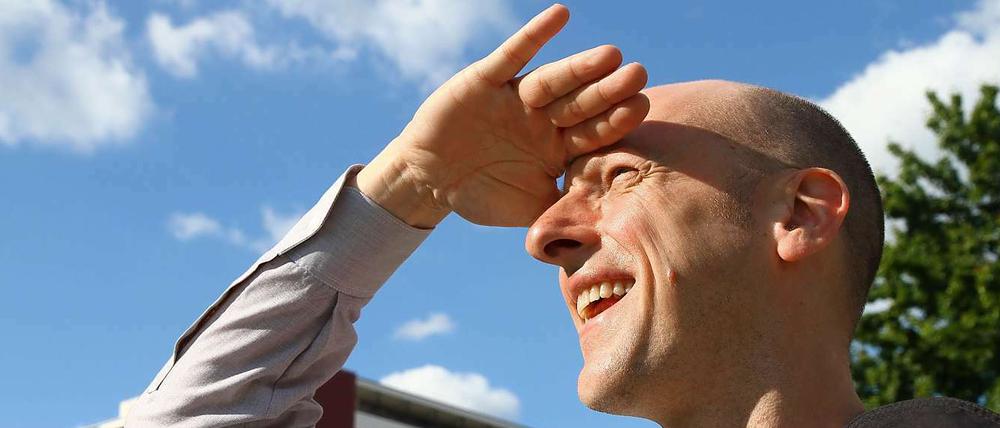
© Thilo Rückeis
Espiner's Berlin: Of Karl Marx and long museums
I was walking across Alexanderplatz last Saturday, on my way to join the night of the long museums, as I kept wrongly calling it, when Karl Marx interrupted my thoughts.
I had been ruminating on how this weekend in Berlin was a world apart from what was going on in London. While Notting Hill was gearing up to put on Europe’s biggest street party with a burst of pop cultural hedonism, Mitte was, in contrast, readying itself to be the hub for a high-cultural tour of the capital’s many museums, that’s if you consider the Currywurst Museum to be high culture (which I do). As I congratulated myself on cleverly taking advantage of the event’s ticket price that gives you more museum euphoria for your euro than having to pay for every individual museum entry (as I’ve complained about before), I was struck by the forlorn Karl.
Karl and I used to be neighbours in London. And here we were neighbours again in Berlin. He looked as serious and dejected here as he did when I visited him in Highgate cemetery, although here in Berlin his pal Engels stands next to him for moral support.
Judging by the worn patch on his knee, where thousands have sat on his lap, he seemed to be much loved. Or perhaps not. I realised why he looked so downcast. He was being moved. While they used to joke before 1989, out of earshot of the Stasi no doubt (if that were possible of course) that these two chaps were pensioners sitting on their suitcases waiting to emigrate to the West - now they really were being relocated. Banished from their centre stage setting - looking up at the monolithic TV tower - they will be carried next week and reset at the edge of the square to make way for the new tube station.
I suppose there’s a good reason for the move. But here, it occurred to me, was a trace of Berlin’s unpalatable past being swept under the carpet. Karl Marx, who as some critics have observed, can be compared to Mohammed or Jesus in terms of the scale of his impact, whose ideology played such a huge part in the 20th century, seemed to me in this gesture to be being airbrushed in a Stalinist way out the city’s history. Sure there are streets, squares and tube stations named after him, but this statue, an icon of the DDR’s past, is surely a national monument. Now he’s going to be reset, with his gaze fixed upon the void where the Palast der Republic used to be.
There’s another example. A place that held the memories of a generation - first dances, first kisses - has been wiped off the map, because it had asbestos. Although, I’m told, there are plenty of buildings in the West which do too, but haven’t been consigned to a similar fate. Is this selective demolition?
In this city more than anywhere else I can think of architecture and street artefacts have a particular resonance and meaning. Forget the actual museums, it’s the streets, statues, buildings that make this place one big open air history lesson. So when you start moving the pieces around or putting them into storage or destroying them, you are playing with an interpretation of history. Rewriting it, even.
The Russian government made sure that some of its monuments in Berlin were protected as part of the reunification deal. They’re untouchable. Not so the likes of Marx and Engels, here. In the rush to re-invent the city, it seems some people are erasing and repositioning bits of the past that they don’t like, with arguably a short-sighted and possibly insensitive view.
Ironically, in this post-crisis world, where capitalism is being questioned, Marx’s time could be coming again - just as he’s being marginalised in the city that gave rise to him and his ideas. As if to prove the case, someone has scrawled on the fence: “You can move the statues but the ideas remain”. They did it in English.
I’m not a Marxist, by the way, just Mark, Karl’s neighbour.
You can email Mark Espiner at mark@espiner.com or follow him on Twitter @deutschmarkUK
- showPaywall:
- false
- isSubscriber:
- false
- isPaid:
- showPaywallPiano:
- false